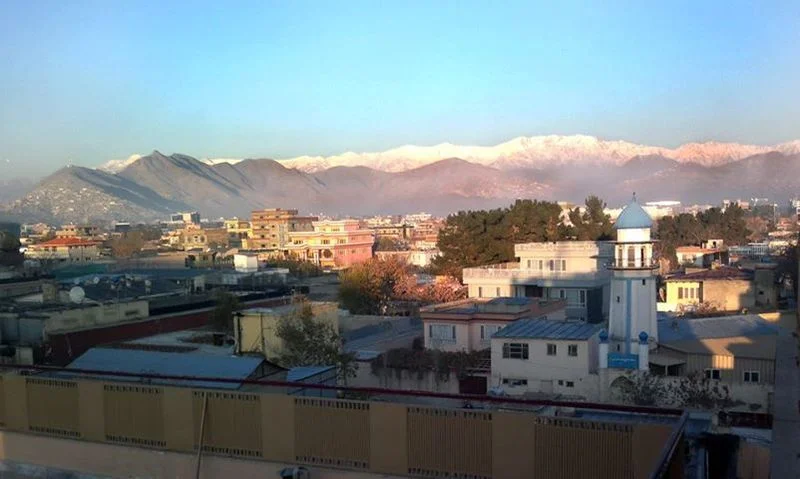The Patience Stone is a mythical stone believed to have special powers. The owner of the stone can tell all her stories, sorrows, and secrets for safe keeping. Finally, one day when the stone has heard enough, and it can no longer take another secret, it explodes into tiny pieces, releasing all it has accumulated into the universe.
Make my day!
Leave a comment at the
end of this post.
Guest Blogger: Eva Vander Giessen
I felt honored just to be talking with her. I couldn’t believe there wasn’t a crowd around us in the Kabul restaurant where we were sitting – why weren’t people hanging onto her words, moved like I was with respect and gratitude for her matter of fact courage?
She is an educator, a mother, a wife. When the Taliban took over, she started a secret school with kids packed into her house. She fought for girls’ education and she even became the Minister of Education in one of Afghanistan’s most conservative provinces, Ghazni, home to ancient minarets, dusty roads, and a resilience that defies reason.
The woman I’m speaking of is Fatema, the Director of Afghan Friends Networks’ programs in Afghanistan.
Why should you care about Fatema, whose story you might forget five minutes after reading? I believe there is something precious that has been lost to us, which Fatema and other Afghans can help us find: patience.
Let me just say, I am not a patient person. When Google maps takes too long to load on my phone I get irritated. But my two visits to Afghanistan have made me passionate about a quality that we in the West usually reserve for 85-year olds and people who like to watch paint dry. Here’s why I am a student of patience.
Widespread change takes time. Ask Nelson Mandela or Susan B. Anthony. This seems obvious, but as Americans we undervalue subtle, steady progress. We also have forgotten that democracy is a system that evolves out of its people, not a one-size-fits-all formula.
I’ve never met young people so passionate in the face of adversity. I met Afghan girls who walk two hours in deep snow to attend classes at AFN Khurasan Learning Centers because they see education as a privilege. One of our University Scholarship recipients graduated high school in his 20s, persevering despite numerous interruptions so he could get into medical school as he dreamt.
The AFN scholarship students I met want to “help other girls achieve their wishes,” or “help my people get better treatment,” or “teach children of Afghanistan to build a better country” --- their aspirations are based on large scale, multi-generational hopes, and this is common among many young Afghans I met.
Patience is essential to courage. Fatema would be safer if she stopped working. People like her get “night letters” nailed on their doors by the Taliban, marking them as targets if they continue behavior deemed “un-Islamic”.
She has to disguise herself with several changes of clothes as she goes about one day’s work. But none of this stops her. She gets up at 5am every day and goes to the Khurasan Learning Centers because she, like our schoolchildren’s parents, know Afghanistan can only be as strong as its people are educated. Her long-term perspective gives her patience and fuels her courage for the long haul.
Lastly, patience helps bring laughter. You might be surprised to hear this, but I spent a good chunk of my time with Afghan friends and colleagues laughing. We laughed about extremist mullahs, we laughed about the uncertainty around what will happen after 2014, we laughed about the prejudice rampant between sexes, ethnicities, and families. Humor helps us deal with the painstakingly slow pace of change.
EvaPhoto22013
Kabul sunrise courtesy of Frank Petrella
My trip to Afghanistan in October 2013 was sobering. Violence in Ghazni has shot up. Unemployment is estimated at 40% and the gap between young and old is causing tensions. But I take my cue from Afghans themselves when they say, “We have patience, it will take time to rebuild and reinvent.”
I must say their patience has paid off. Progress is apparent everywhere. Access to electricity has tripled, the number of children in school went from 1 million to over 7 million in just seven years. Life expectancy is up due to better health care, and media has blossomed from one TV station to 75, plus 175 radio stations.
I am not optimistic enough to believe that Afghans have an easy road ahead. I worry about Fatema, about our students, about the uncertainty of it all. But I am learning how patience plays a role in lasting change, and how rare and important patience is for all of us.
What would our relationships, political and personal look like if we had patience to see big changes through? If we checked our urge to fix, and instead invested in the people who could “fix” themselves?
Eva wrote about her first trip to Afghanistan in 2012, "Survival of The Vegetarian in Afghanistan."
Leave a comment!
Tell us about your visits to Afghanistan.


